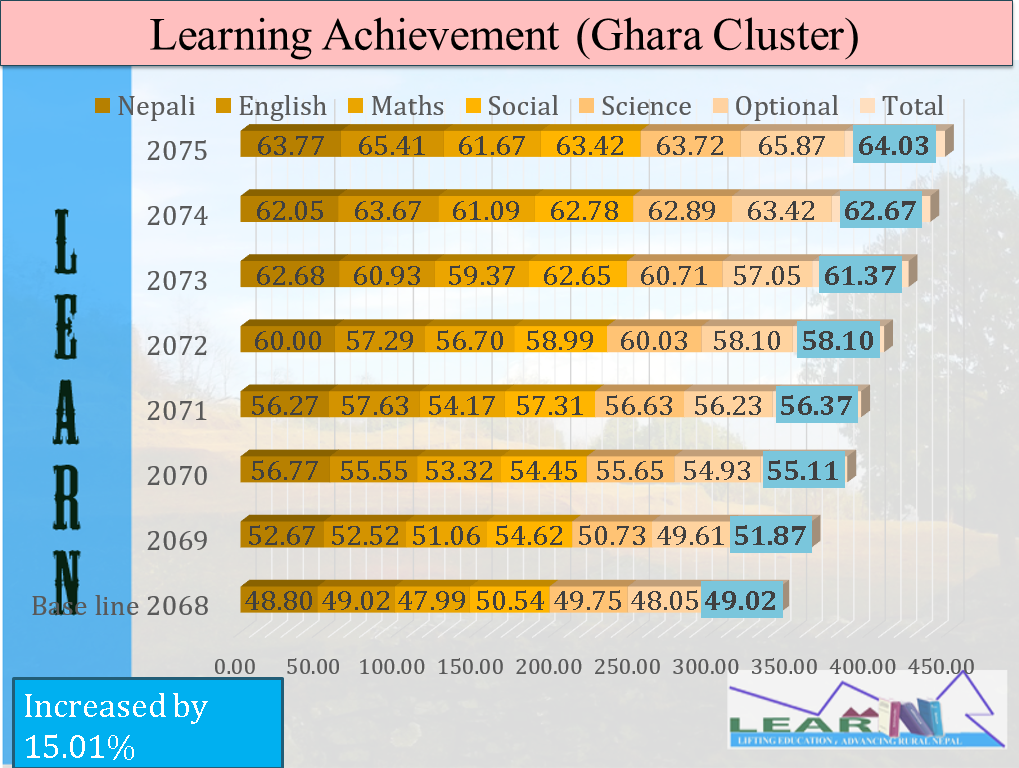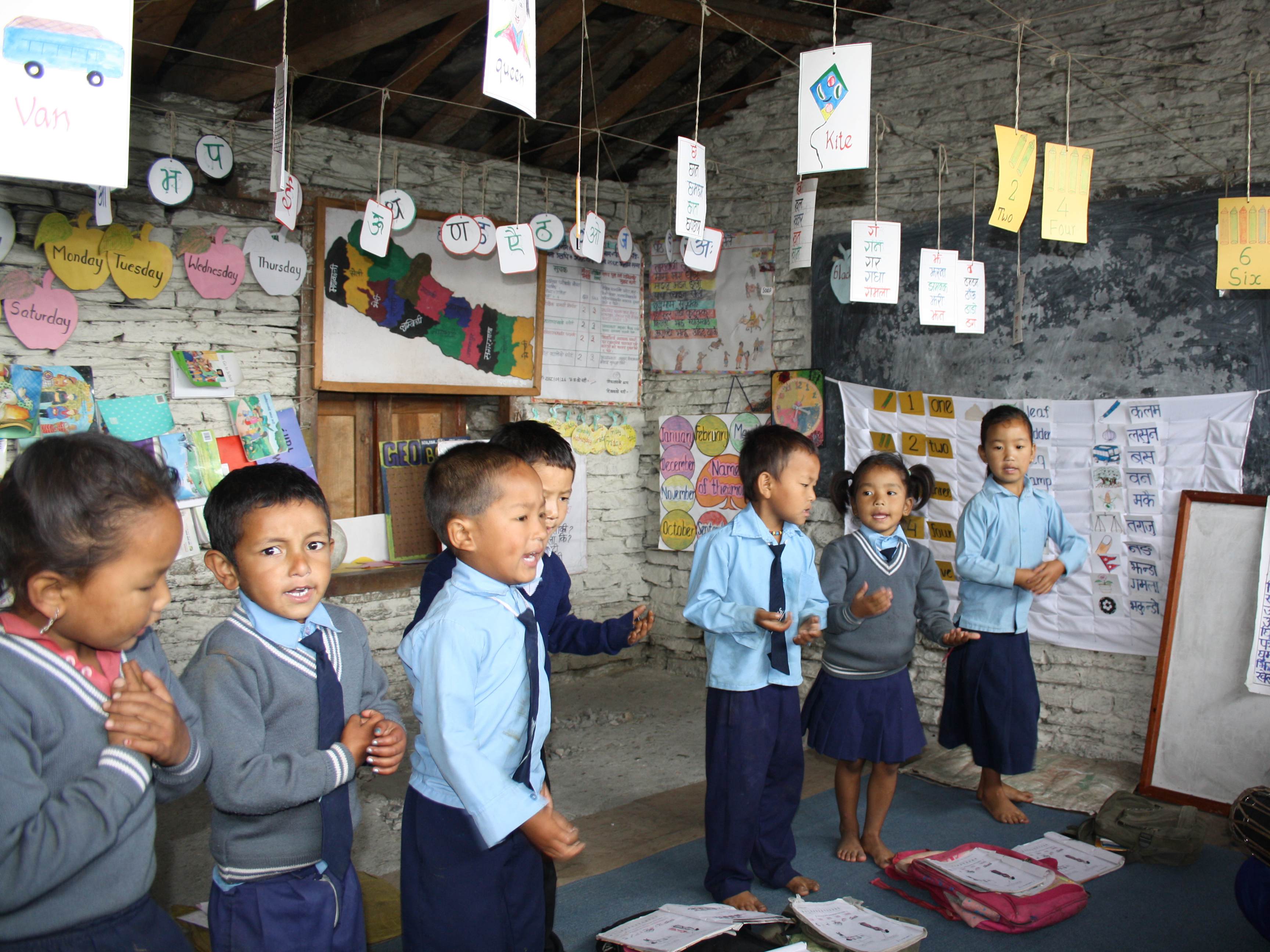Newsletter No 9, June 2021
A reminder of the need for teacher training in Nepal
Nepal is among the poorest nations outside Africa. It is hard to believe that when South Korea was established after the 2nd World War, its economy was on a par with Nepal. Why has Nepal been left so far behind? The reasons are manifold, not least being the diversity of its people, with more than 120 ethnic groups with different languages (a reflection of its mountainous country limiting travel and communications). More than a decade of internal guerrilla warfare did not help, but progress since that came to an end in 2007 has been slow, with continuing party clashes.
The impact of aid efforts from outside the country has been limited despite considerable amounts spent, due to lack of effective coordination of aid to need, amplified by widespread corruption.
In the long term, the solution must arise internally, but this will only happen with better education of the population. This has been hampered in the past, first by a lack of schools and more recently by a lack of competent and effective teachers. This need was seen by Sir Edmund Hillary who, having built numerous schools, hospitals, bridges and airstrips, joined his climbing colleague George Lowe in advocating teacher training.
When QEN started teacher training in 2011, the majority of primary teachers had left school after year ten and had begun teaching without training. That has improved slightly (the minimum qualification for primary teachers is now year 12), but the typical teaching style remains "chalk and talk", copying syllabus material to a blackboard.
Our philosophy is that training should be delivered by masters-degree qualified Nepalese teachers who have the language, local syllabus knowledge and local culture to deliver the training effectively. We offer training to clusters of schools, typically in local high schools though the training is primarily directed to the primary level. Voluntary teacher attendance is generally in excess of 90%. Lead teachers are elected for extra training to be able to mentor their colleagues.
Results have exceeded our expectations. More than 500 teachers have entered training, receiving 50 days training over three years and annual refresher training thereafter. The classrooms of these teachers show the impact. No longer bare, they are colourful with teaching aids, while the atmosphere is one of joy and enthusiasm. Such a contrast to the average Nepali classroom.
Drab classrooms prior to LEARN training:
.jpg?timestamp=1623902135117)
have given way to action and interest:
Our goal is to improve the quality of education, so we track Learning Achievement scores in the schools. For Ghara, where we began training in 2011 (Nepali calendar 2067) these have been the results:

Needless to say LEARN training has not been the only contributing factor, but more than 30% improvement over seven years has been remarkable.
Funding of QEN
QEN has derived its funding from three main sources:
• donations from individuals
• a Rotary Foundation Global Grant project
• Income from a capital fund initiated by a substantial bequest.
Having seen the potential of Rotary support through Global Grants I proceeded to develop the concept, attracting Rotary club sponsorship including clubs accepting the roles of Host and International sponsors. The response I got exceeded my expectations - enough to initiate two projects with prospects of more.
We reached the high point in our growth in June 2019 when:
• our three-year Global Grant project was approaching completion
• a major donation had increased the capital fund to AU$ 1.5m.
• two Rotary Global Grant applications amounting to US$250,000 were ready for submission - one fully funded by Canadian clubs matched by the Canadian Government underpinning the Foundation contribution; the other by 50 clubs from eight countries
• prospects for further funding from Rotary clubs internationally leading to further Global Grant projects were high.
We could foresee growth into a national force, addressing the needs of the 100,000 teachers in the country.
Alas, that was a turning point, as The Rotary Foundation rejected the applications. If you are interested please go to our website at www.nepalaid.org.au/Rotary-rejection.
Left totally reliant upon QEN, LEARN turned to local municipal councils, which bear responsibilities for education in their areas, to contribute financially. The Chairs of three councils are enthusiastic. An MoU was signed with one but implementation was interrupted by the pandemic. Covid brought training to a standstill, as it remains. However, negotiations to renew the MoU are progressing.
Where do we stand, and where to from here?
- We have well-established organisations. QEN’s Board includes world-renowned adventure cinematographer Michael Dillon, a founder of AHF who made six documentaries with Sir Edmund Hillary. Mike is matched by George Hillary, grandson of Sir Ed, as an Ambassador of AHF and director of QEN. Entrepreneur Simon Cowen, writer Gordon Nightingale and my wife Ronda add different perspectives.
• QEN is wholly voluntary, with no administrative costs apart from professional management of its capital fund.
• LEARN has four full-time staff working in close collaboration with government, both local and national. I am especially proud of the team that Krishna Pun has gathered around him. Not only do they have great competence and enthusiasm, but they have clear integrity to remain free of the corruption that is so widespread in their country.
• We have well established practices based on our own ten years of experience and REED (the NGO that delivered training for us initially) before that.
• We have a strong and growing reputation among teachers in Myagdi District, impatient to receive our training.
• We are in a strong financial position, able to sustain our current operations, but dependent upon additional funding to achieve our full potential
• We have strong evidence of international support for our initiative. This was particularly evident in the offers of sponsorship from Rotary clubs around the world. It is a shame that their enthusiasm failed to motivate The Rotary Foundation into accepting this as a major challenge worthy of their focus.
With the apparent loss of Rotary support we can take the easy road of funding activities from investment income, supplemented by donations and whatever contributions can be achieved from municipal councils. Or we can take a more active approach to secure more funding to allow us to grow, to fulfil the potential that is so apparent. The teaching community of Nepal, and ultimately the children coming through their care, will be the beneficiaries.
If you can see your way to supporting us your funding contributions will be most welcome (BSB 633-000, account 161108436). Australian gifts are fully tax deductible. Further details, including for international transfers, can be found at our website: www.nepalaid.org.au/donations. If you could be enticed to more active support or involvement please contact me at peter@nepalaid.org.au. At age 83 I will soon need to look to others to carry the initiative forward.
Rtn Peter Hall, PHF
President, Quality Education Nepal Inc.
pjthall@nepalaid.org.au www.nepalaid.org.au
03 5424 1453; +61 411 745 726
